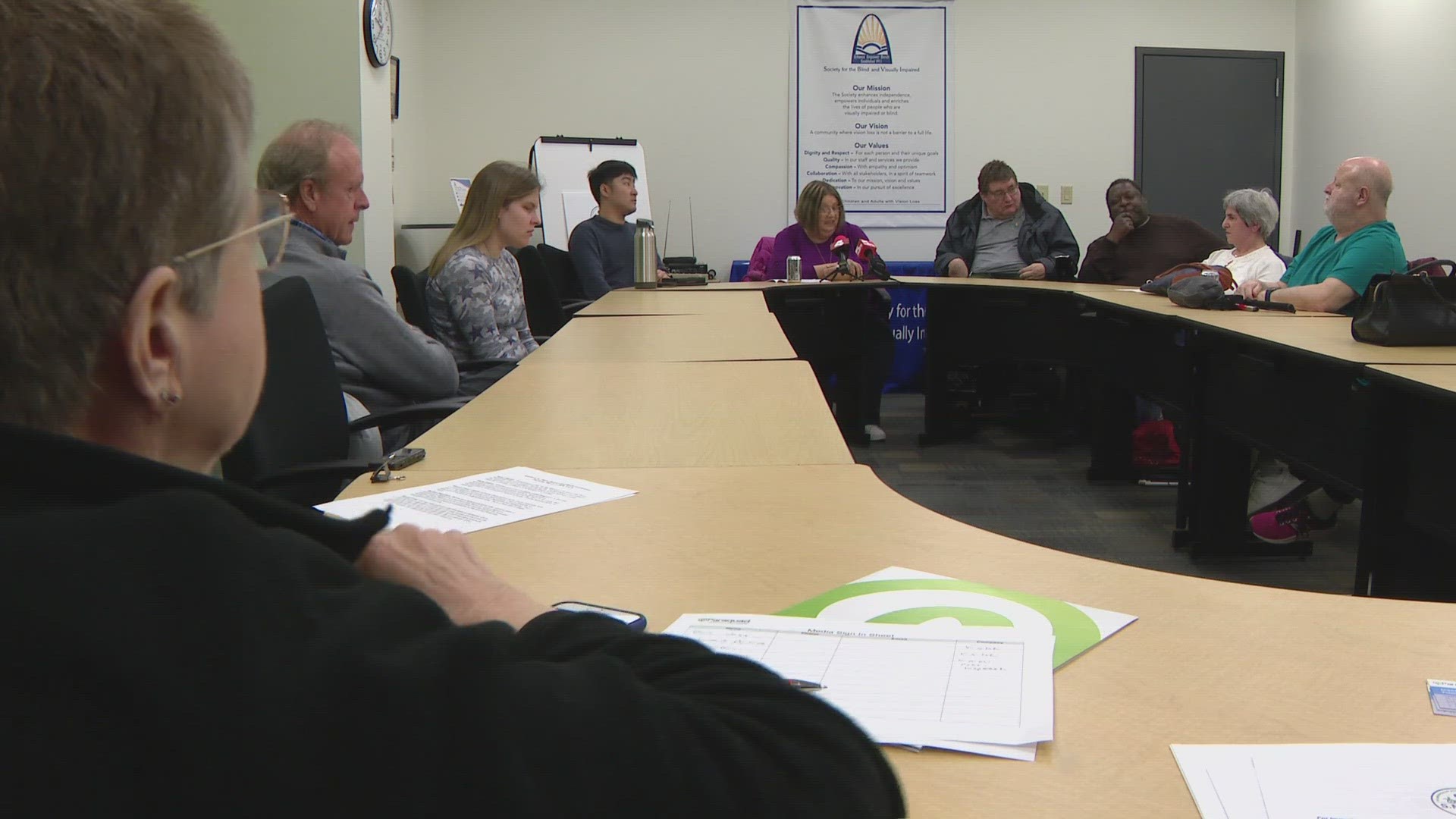ST. LOUIS — It's been nearly a year since Metro Transit scaled back Call-A-Ride services because they didn't have enough operators.
Months since, Bi-State Development CEO Taulby Roach made promises to the St. Louis County Council related to updated software, improved phone and a contract with an ADA consultant.
Since then, advocates said it's caused some riders to wait hours and in some cases have their trips canceled.
Robyn Wallen, member of STL Metropolitan Alliance for Reliable Transit, also known as S.M.A.R.T, was joined by disability advocates and daily riders of Call-A-Ride Thursday for the release of a report card. S.M.A.R.T is convened by Paraquad.
"All too often, people who purchase cars and can drive them are not aware of how well Metro Transit is working," Wallen said.
The group released their first "report card" with grades on how they believe Bi-State Development's Metro Transit is doing as it relates to the Call-A-Ride service.
For ADA compliance, they gave the service an F.
They said rider call logs show them dialing hundreds of times and nobody picking up the phone. Etefia Umana became blind 10 years ago and said the phone system is a part of the problem at Call-A-Ride.
"When you call, it just kicks you out and there are some people that call like 50, 100, 200 times and they give up and those calls aren't recorded," Umana said.
For meaningful engagement with people with disabilities, advocates gave a D.
Seyoon Choi said while Metro has an ADA advisory committee, it needs to be expanded.
"We believe that the committee can be expanded and empowered through Metro, allowing people with disabilities to have a greater voice in implementation, design, programming and any changes are occurring in Metro," Choi said.
The advocates gave an incomplete in the category of keeping promises.
Barbara Sheinbein said a new phone system for Call-A-Ride has been unveiled and is set to be expanded in May.
But she said the ADA consultant hired last year for the service hasn't produced a report yet.
"Metro made several promises publicly last year. They've all been started and none of them have been completed," Sheinbein said.
Finally, advocates gave the customer experience a D plus. Duane Gruis said riders have to schedule three days in advance, which can be difficult to plan for. He's experienced unsafe rides.
"The way the drivers drive is somewhat dangerous, especially in the new blue vans. They drive those vans very fast like they're in a race all the time. So when I'm in those vans, my balance is bad, so I have to hold on to a bar to make sure I don't shift over," Gruis said.
Advocates said the report cards will be issued every quarter and the next one will come out during the summer.
Bi-State Development's Metro Transit's February 2024 report points to improvements made including:
- Increasing call capacity, a streamlined phone system.
- A new phone provider will be in place in May 2024.
- Closing on the final terms of a new scheduling software they hope to implement at the end of 2024.
- Anticipating their ADA consultant will make recommendations shareable with stakeholders by Spring 2024.
The service said additional updates from the report included E-Fare adoption, growing the workforce and an ADA program that allows paratransit customers to use an 'ADA Gateway' card.
Bi-State Development's Metro Transit statement in response to the report card:
“We welcome feedback from our Metro Call-A-Ride customers because our commitment to enhancing their customer experience is unwavering. It is a fact that the workforce crisis created an untenable situation for all sorts of customer service. However, in looking at and working through these issues at Metro Call-A-Ride, we are also addressing legitimate complaints by our paratransit community, and we see this as an opportunity for us to improve not only communications but also quality of service.
We are following up on the commitments that we made and will continue to do so.”
Charles Stewart
Chief Operating Officer, Metro Transit

